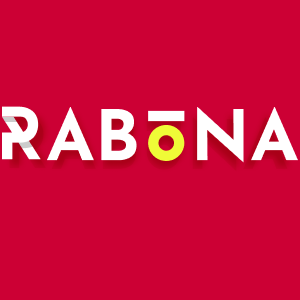Αν ψάχνετε για καλύτερα online casino που έχουν πάρει υψηλότερες βαθμολογίες τόσο από τους ειδικούς στην Ελλάδα, αλλά και από παγκόσμιους ειδήμονες του κλάδου, τότε ήρθατε σε σωστό μέρος.
Κορυφαία καζίνο για το έτος 2023 σύμφωνα με τους ειδικούς μας
| Ιστότοπος | Χαρτοφυλάκιο παιχνιδιών | Αριθμός παρόχων | Όρια ανάληψης |
| Rabona Casino | 4.000+ | 95 | €5.000 ανά συναλλαγή |
| Pledoo Casino | 5.000+ | 131 | €4.000 την ημέρα |
| Rolling Slot Casino | 3.000+ | 75 | €10.000 το μήνα |
| Nino casino | 4.000+ | 126 | €4.000 την ημέρα |
| 5Gringos Casino | 3.000+ | 75 | €5.000 ανά συναλλαγή |
Πως βαθμολογούμε τα online casino και τι να προσέξετε κατά την επιλογή του παρόχου;
Υπάρχουν μερικά κρίσιμα στοιχεία τα οποία καλείστε να προσέχετε όταν επιλέγετε ένα διαδικτυακό καζίνο να εγγραφείτε:
- Άδεια λειτουργίας: προσέξτε πάντα ο ιστότοπος που πρόκειται να ¨ψηφίσετε” με το πορτοφόλι σας να λειτουργεί βάσει της άδειας λειτουργίας, που να του έχει χορηγηθεί από μία ή περισσότερες ρυθμιστικές αρχές, που να ορίζουν τα νομικά πλαίσια μέσα στο οποία οφείλει να κινείται ο χειριστής φορέας εκμετάλλευσης.
- Κορυφαίοι πάροχοι παιχνιδιών: η παρουσία των μεγάλων παρόχων σε έναν ιστότοπο καζίνο βεβαιώνει την αξιοπιστία του και ένα επίπεδο εμπιστευτικότητας που αξίζει να έχει ανάμεσα στους παίκτες. Οι εταιρείες ανάπτυξης λογισμικού υποβάλλουν τα παιχνίδια τους σε τακτικούς ελέγχους από ανεξάρτητες εταιρείες όπως και λαμβάνουν ειδικές άδειες από διάφορες δικαιοδοσίες σχετικά με το δικαίωμα εγκατάστασης πρόσβασης στα παιχνίδια τους στις χώρες του κόσμου.
- Πολλαπλές λύσεις πληρωμών: και φυσικά οι μέθοδοι πληρωμών που υποστηρίζει το καζίνο κάθε φορά έχουν μεγάλη σημασία για τον παίκτη, πρέπει να είστε σίγουροι πως θα βρείτε τον τρόπο να πληρώσετε και να εισπράξετε τα κέρδη σας με τρόπο που σας βολεύει να το κάνετε, είτε από άποψη οικονομικών, είτε γεωγραφικών θεμάτων.
- Υποστήριξη 24/7: τα καλύτερα online casino είναι πάντα διαθέσιμα για επικοινωνία με τους πελάτες τους, λαμβάνονται υπόψη πως μιλάμε για καζίνο με διεθνή κλίμακα κατάταξης, εννοείται πως δεν μπορεί να οριστεί ένα σταθερό ωράριο εργασίας για το τμήμα εξυπηρέτησης πελατών, καθώς βρίσκονται σε όλα τα σημεία του κόσμου.
- Γρήγορες αναλήψεις: καταλαβαίνουμε πως υπάρχουν αρκετοί παράγοντας που επηρεάζουν τον χρόνο επεξεργασίας της απόσυρσης χρημάτων, όπως π.χ. η διαδικασία επαλήθευσης στοιχείων, αλλά μερικά καζίνο δυσκολεύονται να διεκπεραιώνουν αναλήψεις μέσα στα χρονικά πλαίσια που έχουν δηλωθεί αρχικά, αυτό σημαίνει είτε επειδή δεν έχει αρκετές οικονομικές δυνάμεις, είτε το καθυστερεί σκόπιμα ώστε ο παίκτης να ξοδέψει το χρήματα που έχει στο bankroll του μέχρι να ολοκληρωθεί η κατάσταση. Συνιστούμε να ξεκινήσετε με ελάχιστες αναλήψεις ώστε να δείτε πόσος χρόνος απαιτείται για την ολοκλήρωση συναλλαγής.
- Θετικές κριτικές: οι κριτικές αν και δεν μπορούν να αποτελέσουν μία αξιόπιστη πηγή πληροφοριών, ωστόσο δείχνουν μία γενική εικόνα εμπειρίας των παικτών.
Rabona Casino: γενικές πληροφορίες
| Χειριστής του ιστότοπου | Rabidi N.V |
| Έτος ίδρυσης | 2019 |
| Όρια ανάληψης | Έως €5.000 ανάλογα με τη μέθοδο |
| Άδεια λειτουργίας | Ιρλανδία
Curaçao |
| Ιστότοπος στα Ελληνικά | ❌ |
| Μπόνους εγγραφής | 100% έως €500 + 200 ΔΠ + 1 Καβούρι μπόνους |
| Διαθέσιμες μέθοδοι πληρωμών | Visa
Mastercard Neteller Skrill Paysafecard Bank Transfer |
| Διαθέσιμο σε | Windows
Google Play Apple Store Safari Google Chrome |
| Δεκτά κρυπτονομίσματα | Bitcoin
Litecoin Ethereum Ripple |
| Χαρτοφυλάκιο παιχνιδιών | 4.000+ |
| Αριθμός παρόχων | 95 |
Rabona Casino: εγγραφή απλά και γρήγορα
Για να ανοίξετε την πρόσβαση στο ευρύτερο χαρτοφυλάκιο παιχνιδιών του Rabona Casino, θα πρέπει να κάνετε εγγραφή. Πώς να ολοκληρώσετε όμως τη διαδικασία; Λοιπόν, το μόνο που έχετε να κάνετε είναι να ακολουθήσετε τα παρακάτω βήματα:
- Εισάγετε τα στοιχεία σύνδεσής σας στο Rabona.
- Κάντε κλικ στην αποδοχή των κανόνων συμμετοχής στο καζίνο και πατήστε στο κουμπί “Συνέχεια”.
- Εισαγάγετε τα στοιχεία της διεύθυνσής σας.
- Μοιραστείτε την ημερομηνία γέννησής σας.
- Προσδιορίστε το φύλο σας και δημιουργήστε τον λογαριασμό σας.
Πάροχοι παιχνιδιών στο Rabona Casino

Το Rabona Casino δεν ασχολείται με το σχεδιασμό και ανάπτυξη παιχνιδιών του καζίνο, ούτε κατασκευάζει το λογισμικό που τροφοδοτεί ολόκληρη τη διεπαφή. Η διαχείριση του καζίνο συνεργάζεται με διαφορετικούς δημιουργούς λογισμικού. Αυτό γίνεται όχι μόνο να διασφαλιστεί ότι οι παίκτες θα βρουν εδώ τα καλύτερα παιχνίδια καζίνο. Είναι επίσης μια μέθοδος που χρησιμοποιεί ο χειριστής για να διατηρήσει την υψηλή δημοτικότητα του Rabona Casino. Μέχρι στιγμής, οι εταιρείες ανάπτυξης παιχνιδιών είναι ο λόγος πίσω από τα ποιοτικά προϊόντα και τα εκπληκτικά θέματα των κουλοχέρηδων, των επιτραπέζιων και των παιχνιδιών keno. Μερικές από αυτές τις εταιρείες περιλαμβάνουν:
- Pragmatic Play
- Fugaso
- Big Time Gaming
- NetEnt
- Playson
- BGaming
- Skywind
- Microgaming
- Hacksaw
Τα καλύτερα αθλητικά στοιχήματα στο Sportaza μέσω του link.
Οι προσφορές που θα βρείτε στο Rabona Casino
Παρακάτω αναφερόμαστε σε μερικές τακτικές προσφορές που είναι διαθέσιμες τόσο σε νέους όσο και σε τακτικούς παίκτες του καζίνο, αλλά υπάρχουν και πολλές προσφορές που αφορούν είτε συμμετοχή σε ορισμένα παιχνίδια, είτε που έχουν προσωρινό χαρακτήρα, οι οποίες δίνουν δυνατότητα παράτασης του χρόνο διασκέδασης για τους παίκτες. Και ας μη ξεχάσουμε για τοους Drops and Wins τακτικούς αγώνες όπου μπορείτε να κερδίσετε ακόμα μεγαλύτερα χρηματικά έπαθλα!
| Μπόνους εγγραφής | 100% έως €500 + 200 Δωρεάν Περιστροφές και ένα μπόνους καβούρι που μπορεί να χρησιμοποιηθεί σε αποκλειστικές κληρώσεις του ιστότοπου |
| Πακέτο καλωσορίσματος για κρύπτο καταθέσεις | Κατάθεση 1️⃣ 50% έως 50 mBTC |
| Κατάθεση 2️⃣ 100% έως 12.5 mBTC | |
| Κατάθεση 3️⃣ 100% έως 12.5 mBTC | |
| Κατάθεση 4️⃣ 25% έως 25 mBTC | |
| Εβδομαδιαίο μπόνους επαναφόρτωσης | Διεκδικήστε έως €700 μετρητά και 50 ΔΠ κάνοντας κατάθεση από 50 ευρώ κάθε εβδομάδα |
| Δωρεάν Περιστροφές της Κυριακής | Παίξτε τα παιχνίδια της ELA Games κάθε Κυριακή και διεκδικήστε έως 100 Δωρεάν Περιστροφές για τον κουλοχέρη Spinanga |
| Επιστροφή χρημάτων έως 15% για τους παίκτες VIP επιπέδων | Professional: 5% έως €1.000 |
| World Class: 10% έως €2.000 | |
| Legend: 15% έως €3.000 | |
| Επιστροφή από στοιχήματα στο Live Casino | 25% έως €200 |
Rabona Casino: καταθέσεις και αναλήψεις κεφαλαίων
Οι λύσεις συναλλαγών στο Rabona είναι ένα από τα πιο κρίσιμα ζητήματα αυτής της κριτικής. Ευτυχώς, το Rabona Casino διαθέτει πολλές επιλογές πληρωμών που είναι γρήγορες και αξιόπιστες. Επιπλέον, εργάζονται όλο το εικοσιτετράωρο για να διασφαλίζουν ότι οι πελάτες έχουν πάντα επαρκές bankroll ανά πάσα στιγμή.
Εδώ είναι οι βασικές μέθοδοι συναλλαγών διαθέσιμες για τους παίκτες στην Ελλάδα:
Μέθοδοι κατάθεσης:
- Visa
- Mastercard
- Neteller
- Paysafecard
- MiFinity
- BankTransfer
- Bitcoin
- Ethereum
- Ripple
- Binance Pay
Μέθοδοι ανάληψης:
- Neteller
- MiFinity
- Bank Transfer
- Bitcoin
- Ethereum
- Ripple
- Binance Pay
| Ελάχιστη κατάθεση
€10 |
Μέγιστη κατάθεση
€5.000 |
Ελάχιστη ανάληψη
€20 |
Μέγιστη ανάληψη
€5.000 |
Χρόνος αποπληρωμής των κερδών 3-5 εργάσιμες |
Συμπέρασμα
Αν δεν έχετε πολλή εμπειρία στα διαδικτυακά καζίνο ή ψάχνετε να ανακαλύψετε νέες καινοτόμες πλατφόρμες διαδικτυακής διασκέδασης, εμπιστευτείτε τη γνώμη των ειδικών μας, που έχουν ελέγξει δεκάδες ιστοσελίδες καζίνο, η ομάδα μας βρίσκεται σε συνεχή αναζήτηση για περισσότερες δυνατότητες τζόγου και επιλέγουμε μόνο τους καλύτερους χειριστές να συστήνουμε στους αναγνώστες μας!

